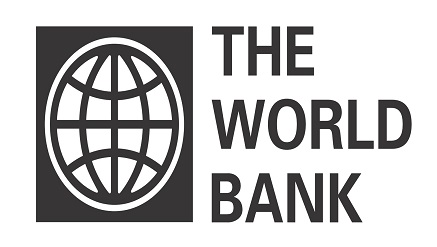E-Financial
IFC Invests in Africa Local Currency Bond Fund to Support Capital Markets

IFC, a member of the World Bank Group, has announced that it is investing $20 million in debt in the African Local Currency Bond Fund (ALCB Fund Ltd.) to help develop local currency capital markets in Africa.
The ALCB Fund was established by KfW Development Bank on behalf of the German Ministry for Economic Cooperation and Development (BMZ) in 2012 to support the development of African bond markets and to improve private sector access to long-term, local currency financing.
Through investments and technical assistance, the ALCB fund mobilizes domestic capital to invest in local currency bonds, which can provide a source of finance for businesses in Africa.
This improves the sustainability and diversity of funding sources and reduces risk at the level of the individual issuer as well as on a systemic level across the economy.
The Fund targets non-sovereign bonds whose proceeds promote financial inclusion, housing finance, renewable energy, agriculture and supply chain finance.
ALCB fund has been investing for four years, during which it has played a key role in bringing 19 local currency bonds to market for 14 companies in seven countries, investing $42.6 million. In 2016, for every $1 invested by the fund in local currency bonds, $10.62 was invested by third parties.
The fund is managed by LHGP Asset Management LLP (LHGP AM), an alternative asset manager regulated by the UK Financial Conduct Authority with offices in London and Nairobi.
LHGP AM was appointed as Fund Manager to the ALCB Fund in May 2015, where ALCB was established based on an idea in the G20 Action Plan to Support the Development of Local Currency Bond Markets, adopted by the Group in 2011.
“IFC’s investment is truly a landmark event for the ALCB Fund, as it will help strengthen the Fund’s position as a main actor in local currency bond markets in Africa. The additional funding will strongly improve its positive impact on African bond issuers, local capital markets and final beneficiaries alike”, said Karl von Klitzing, Director of the ALCB Fund and Principal Project Manager at KfW Development Bank.
Jingdong Hua, IFC Vice President and Treasurer said, “ALCB Fund is a culmination of IFC, KfW and other partners’ efforts to develop domestic capital markets in Africa. The fund’s success will set an example to other asset managers, and could lead to similar funds that provide local currency financing to African businesses.”
Bim Hundal from LHGP AM said “We are pleased and excited to work with KFW and the IFC on this ground-breaking initiative. Providing local currency financing to African corporations puts the ALCB Fund at the forefront of capital markets innovation.”
IFC’s investment in the ALCB Fund was announced during the IFC-sponsored Capital Markets Africa Conference in Nairobi, Kenya. The conference saw participation from over 250 actors in Africa’s financial sector, who shared ideas on how to strengthen capital markets on the continent.
E-Financial
Nigerian Banks End Years of Embargo, Resume Intl Transactions on Naira Cards

Nigerian banks have resumed international transactions on naira-denominated debit cards, marking a significant shift in banking operations for customers who rely on foreign payments.

This is coming nearly three years of suspension.
United Bank for Africa (UBA) and Wema Bank, in separate communications to their customers, announced the restoration of international payment services on their naira cards.
In a notice to its customers, UBA said the reactivation of international transactions on its premium naira cards aligns with its commitment to delivering improved and seamless banking experiences.
“We are pleased to inform you that all UBA Premium Naira Cards, including Gold, Platinum, and World variants, are now enabled for international transactions,” the bank stated.
“This means you can now use your Premium Naira Card for global payments — including online shopping, POS, and ATM transactions — with ease and flexibility. If you haven’t used your card recently, now is a great time to rediscover the convenience and prestige that comes with being a UBA premium cardholder.”
Similarly, Wema Bank announced that its customers can now make dollar payments on international platforms using their naira Mastercards.
“Your Wema Naira Mastercard just went global!” the bank said. “Now you can pay in dollars on all your favourite international platforms — Amazon, eBay, AliExpress, Netflix, Spotify, YouTube.”
The development marks a major relief for Nigerian customers who have had to rely on dollar cards or alternative payment methods since most banks suspended international usage of naira cards in 2021 due to foreign exchange scarcity.
E-Financial
Flutterwave Secures 20 more US Money Transmitter Licences

Flutterwave, Africa’s leading payments technology company, today announced the relaunch of its flagship remittance solution, Send App, across U.S. states following its newly acquired Money Transmitter Licences (MTLs).

This comes after Flutterwave secured 20 additional MTLs in the U.S., adding to the 14 licenses the brand has held since 2023.
Altogether, this achievement raises Flutterwave’s total number of direct licenses to 34, allowing the company to operate across many U.S. states and territories without partners or intermediaries.
Users in the U.S. can now send money to Nigeria, Ghana and Egypt, unlocking new remittance corridors that were previously unavailable.
Alongside this expansion, the onboarding process has been streamlined with a quick ID check, making it faster and easier for new users to get started.
Additional improvements include optimised payment support for US-issued Visa and Discover cards, enhanced security measures to safeguard transactions and maintain compliance, and improved in-app flows for a simpler, more efficient sending experience.
This return also highlights Flutterwave’s commitment to delivering a seamless, secure, and regulatory-compliant user experience for all Send App customers in the U.S. Users can now send money from DC, Georgia, Maryland, North Carolina, Michigan, South Carolina, Tennessee.
Other U.S. states and territories where Send App by Flutterwave supports outward remittances include Alaska, Arizona, Arkansas, Delaware, Idaho, Illinois, Indiana, Iowa, Louisiana, Maine, Minnesota, Mississippi, and Missouri, Nebraska, New Hampshire, New Mexico, North Dakota, Oklahoma, Oregon, Puerto Rico, Rhode Island, South Dakota, Utah, Washington, West Virginia, Wisconsin, and Wyoming.
Commenting on the relaunch, Olugbenga “GB” Agboola, Flutterwave Founder and CEO, said, “By expanding our reach and enhancing our services, we are empowering millions of Africans in the U.S. to maintain strong financial ties with their home countries, support their families, and contribute to economic development across the continent. Additionally, we are staying true to our core mission of bridging Africa with the global economy and vice versa.”
Earlier this year, Flutterwave integrated Swap into Send App for seamless FX transactions and strengthened its services in Ghana by securing approval for inward remittance from the Bank of Ghana.
E-Financial
Court Affirms NIBSS Authority to Manage BVN

Federal High Court in Abuja on Friday affirmed the authority of the Nigeria Inter-Bank Settlement System (NIBSS), to manage the Bank Verification Number (BVN), database across the country, in line with the Central Bank of Nigeria (CBN), Act and other relevant banking laws.

This is according to a judgment delivered by Justice James Omotosho on Friday.
Wolemi Esan, senior advocate of Nigeria, NIBSS’s counsel, and Kofo Abdulsalam-Alada, lead counsel for the CBN, among others, had sought a restraining order to prevent any institution in Nigeria from challenging the agency’s statutory authority to maintain and manage the BVN database.
This comes as NIBSS had alleged that Digital Rights Lawyers Initiative filed multiple suits, either directly or through proxies, challenging its authority to manage the BVN database and claiming that such management violates constitutional privacy rights.
However, Justice Omotosho, delivering his judgment, said the BVN does not infringe on the constitutional right to privacy.
“The initiative does not infringe on the constitutional right to privacy but rather serves as a necessary tool for safeguarding public interest and enhancing financial security.
“NIBSS has the power to manage the BVN,” the judge said, citing relevant CBN laws.
“The court grants the reliefs of NIBSS as prayed,” he stated.

 Telecom2 days ago
Telecom2 days agoMTN Nigeria Debuts Game-Changing CPaaS Platform at NextNow Forum

 News2 days ago
News2 days agoAMCON Confirms ₦100Bn Sale of Ibadan DisCo Amid Legal Disputes

 E-Financial2 days ago
E-Financial2 days agoNAICOM Issues New Licenses to SanlamAllianz Life, General Insurance

 E-Financial1 day ago
E-Financial1 day agoCourt Affirms NIBSS Authority to Manage BVN

 E-Financial2 days ago
E-Financial2 days agoGTCO to Become First Nigerian Bank to List on London Stock Exchange

 E-Business2 days ago
E-Business2 days agoDomain of Deception as Attackers Deploy Spyware Under Guise of Legal Threats

 Telecom1 day ago
Telecom1 day agoMTN, 9mobile Commence Ground-breaking National Infrastructure Partnership

 Broadcasting2 days ago
Broadcasting2 days agoIFC, AfDB Collaborate with EbonyLife Media to Explore Supporting the African Film Industry to Drive Job Creation















